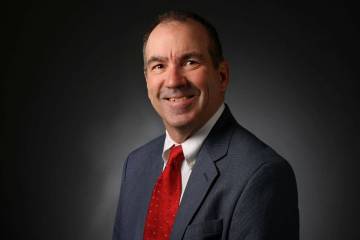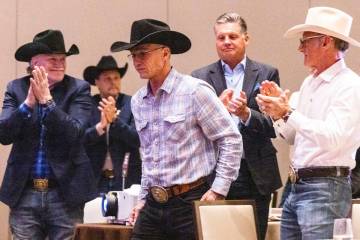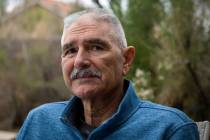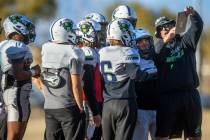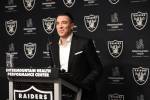Two sides to Rubin ‘Hurricane’ Carter
It was 1975 when I first discovered Rubin “Hurricane” Carter, the former boxer who died Sunday in Toronto at age 76.
I was a senior in high school. I was introduced to the Hurricane by my pal Jack. And by Bob Dylan.
Jack was a huge Bob Dylan fan. He said I should hear this song Dylan wrote about Hurricane Carter. It was 8 minutes, 33 seconds long.
“Here comes the story of the Hurricane. The man the authorities came to blame. For something that he never done ...”
It went on from there.
I liked that song; I liked when Dylan would tell stories by writing long songs. Such as “Lily, Rosemary and the Jack of Hearts.” That one lasted 8:51.
And so I became sympathetic to the story of the Hurricane, and to the man himself. A lot of people did. He literally became a folk hero.
Rubin “Hurricane” Carter, the hard-punching boxer from the tough parts of New Jersey, fought Joey Giardello for the middleweight title in 1964. He lost a unanimous decision. But he had knocked out Emile Griffith in one round the year before.
Those fights were mostly what he was known for, until the night of June 17, 1966.
Carter and another guy, John Artis, said they were drinking in a bar in Paterson, N.J., when two other guys walked into another tavern in Paterson, the Lafayette Bar and Grill, and blew away the bartender and a male customer. A female customer would die of her gunshot wounds about a month later.
If you have heard the Dylan song, or saw the movie where Rubin Carter was portrayed by Denzel Washington in an Oscar-nominated performance, then you know the rest of the story: How Carter and Artis were falsely accused of those killings, based largely on the testimony of a couple of petty thieves who placed them at the scene, and a woman who lived above the bar.
Carter would spend almost 20 years in prison before a United States District Court judge set him free in 1985. Judge Haddon Lee Sarokin said the prosecution had been “predicated upon an appeal to racism rather than reason, and concealment rather than disclosure.”
Or as retired New Jersey sportswriter and sports historian Jerry Izenberg said from his Henderson home after Carter’s death was reported, “He was railroaded.”
“I’m not saying he was innocent. He could have been innocent. I’m saying he was railroaded by the prosecution,” Izenberg said.
In Izenberg’s mind, the authorities broke more rules than Andrew Golota did in his fight with Riddick Bowe.
“They wanted him in jail.”
So they got their wish, and we got that great song by Dylan. And that fine movie about the Hurricane directed by Norman Jewison, even if there were some inaccuracies to it, or some oversights, such as Rubin Carter having a mean streak and having been earlier sent to prison for four years for mugging people. This was after he had been honorably discharged from the Army but before he developed the left hook.
Jerry Izenberg covered a lot of the Hurricane’s fights. He was at the Garden the night Holley Mims knocked the Hurricane down but let him off the hook, setting up Carter’s title shot. Holley Mims was a good fighter, Izenberg said, but he became known for letting guys off the hook, and for making them look good in certain situations.
Anyway, Izenberg got to know Rubin Carter, and they liked each other, or so Izenberg thought. Then one night the Hurricane got to drinking, and he made some remarks the boxing writer thought were racially insensitive.
There was a lot of racial tension in New Jersey in those days.
That was the last time they spoke. But Izenberg said he was at the Garden the night Dylan performed a benefit concert for the Hurricane. So was Ali.
Apparently, there were two sides to Rubin “Hurricane” Carter.
There was the side Bob Dylan sang about and the side Denzel Washington portrayed in the movies. That was an admirable side, even if Dylan embellished the Hurricane’s record: He was not the “number one contender for the middleweight crown, had no idea what kinda (stuff) was about to go down,” having never been ranked higher than No. 3.
Then there was the other side, the rough side. That’s the side you didn’t hear too much about.
From most reports, Rubin Carter became the guy Bob Dylan sang about, and the guy Denzel Washington portrayed in the movies. Upon his release from prison, Carter served as executive director of an organization called Association in Defense of the Wrongly Convicted.
If he was railroaded for a crime he didn’t commit, as the sportswriters and countless others believe, then it truly was a travesty, a deplorable miscarriage of justice. That is the context in which most probably will choose to remember Rubin Carter.
When I asked what his first reaction was when he heard the news about the Hurricane, this is what Jerry Izenberg said:
“I’m glad I don’t have to write the story.”
Las Vegas Review-Journal sports columnist Ron Kantowski can be reached at rkantowski@reviewjournal.com or 702-383-0352. Follow him on Twitter: @ronkantowski.




